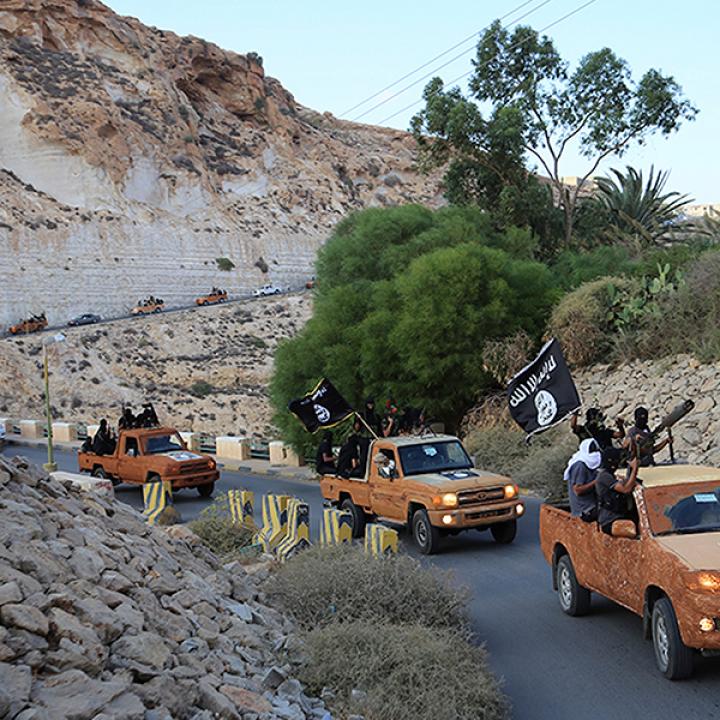

ISIS continues to pursue its expansion model in Libya, Sinai, and other hotspots, raising new challenges that differ from those posed by al-Qaeda's past franchise approach.
The Islamic State announced several months ago that it was "annexing" territory in Algeria, Libya, Sinai, Saudi Arabia and Yemen. It is likely that the group plans to pursue a similar approach in Afghanistan and Pakistan following its announcement of accepting pledges of allegiance from former members of the Afghan and Pakistan Taliban to also try and "annex" territory there under the framework of a new wilayah called "Wilayat Khorasan." On its face, this bold declaration of an expanding number of wilayat (provinces) resembles the announcements by al-Qaeda of creating numerous franchises in the mid-2000s.
There is one key difference between al-Qaeda and the Islamic State's model for expansion. Al-Qaeda wanted to use its new franchises in service of its main priority: attacking Western countries to force them to stop supporting "apostate" Arab regimes, which without the support of Western countries would then be ripe for the taking. This has only truly worked out with its Yemeni branch, al-Qaeda in the Arabian Peninsula (AQAP). On the other hand, while the Islamic State does not have an issue with its supporters or grassroots activists attacking Western countries, its main priority is building out its caliphate, which is evident in its famous slogan baqiya wa tatamaddad (remaining and expanding). As a result, it has had a relatively clear agenda and model: fighting locally, instituting limited governance and conducting outreach. This differs from al-Qaeda's more muddled approach -- it hoped a local franchise would conduct external operations, but many times franchises would instead focus on local battles or attempts at governance without a clear plan, as bin Laden had warned. Moreover, the Islamic State has had a simple media strategy for telegraphing what it is doing on the ground to show its supporters, potential recruits and enemies that it is in fact doing something. This accomplishes more, even if it appears that the Islamic State is doing more than it actually is...
Washington Post


